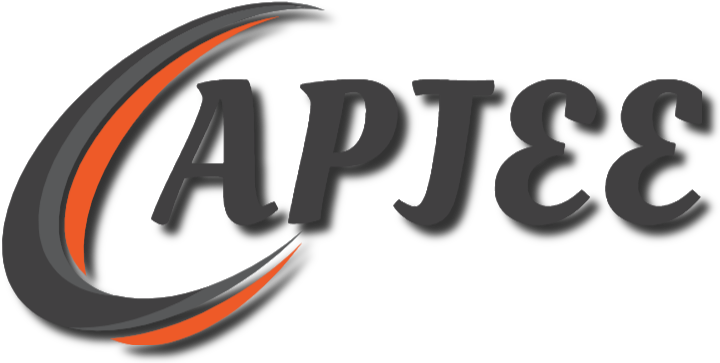The Effect of Emotional Intelligence on the Diversity Climate and Innovation Capabilities
DOI:
https://doi.org/10.18034/apjee.v5i2.561Keywords:
Diversity climate, invention abilities, emotional intelligence, technical outcomesAbstract
This study explores the relationship between emotional intelligence, a diverse work environment, a creative climate, and an innovative corporate culture and capabilities. To get a large enough sample, the questionnaire was used. Based on our findings, it appears that emotional intelligence has an impact on a diverse workplace climate. A diverse workforce and an innovative service mix are inextricably linked. Based on our findings, it appears that diversity in an organization's innovation culture is directly related to the pace of innovation in that organization. Our goal is to provide additional insight into existing research in the public sector. A company's emotional intelligence practices are implemented, and the employees' emotional intelligence skills are taught. The study also encourages the implementation of policies to help deal with climate change and innovation diversity. These policies include diverse input in innovation decision-making. This advice can be used by everyone, helping organizations attain better technical results. Service innovation capabilities are influenced by factors such as emotional intelligence, a diverse work environment, and an innovative business culture.
Downloads
References
Bar-On, R. (2006). The Bar-On model of emotional-social intelligence. In P. Fernández-Berrocal and N. Extremera (Guest Editors), Special Issue on Emotional Intelligence. Psicothema, 17.
Ganapathy, A. (2015). AI Fitness Checks, Maintenance and Monitoring on Systems Managing Content & Data: A Study on CMS World. Malaysian Journal of Medical and Biological Research, 2(2), 113-118. https://doi.org/10.18034/mjmbr.v2i2.553
Ganapathy, A. (2016). Speech Emotion Recognition Using Deep Learning Techniques. ABC Journal of Advanced Research, 5(2), 113-122. https://doi.org/10.18034/abcjar.v5i2.550
Ganapathy, A. (2017). Friendly URLs in the CMS and Power of Global Ranking with Crawlers with Added Security. Engineering International, 5(2), 87-96. https://doi.org/10.18034/ei.v5i2.541
Ganapathy, A., & Neogy, T. K. (2017). Artificial Intelligence Price Emulator: A Study on Cryptocurrency. Global Disclosure of Economics and Business, 6(2), 115-122. https://doi.org/10.18034/gdeb.v6i2.558
Movva, L., Kurra, C., Koteswara Rao, G., Battula, R. B., Sridhar, M., & Harish, P. (2012). Underwater Acoustic Sensor Networks: A Survey on MAC and Routing Protocols. International Journal of Computer Technology and Applications, 3(3).
Narayana, S. L., Suneetha Devi J., Bhargav Reddy I., Harish Paruchuri. (2012). Optimizing Voice Recognition using Various Techniques. CiiT International Journal of Digital Signal Processing, 4(4), 135-141
Neogy, T. K., & Paruchuri, H. (2014). Machine Learning as a New Search Engine Interface: An Overview. Engineering International, 2(2), 103-112. https://doi.org/10.18034/ei.v2i2.539
Newman, M.A., Guy, M.E. and Mastracci, S.H., (2009). Beyond cognition: affective leadership and emotional labor. Public Administration Review, 69(1), 6-20.
NSW Public Service Commission, (2013). Capability framework. NSW Public Service Commission, Sydney, available at: www.psc.nsw.gov.au/Sector-Support/Capability-Framework, (6 September 2014).
Paruchuri, H. (2015). Application of Artificial Neural Network to ANPR: An Overview. ABC Journal of Advanced Research, 4(2), 143-152. https://doi.org/10.18034/abcjar.v4i2.549
Paruchuri, H. (2017). Credit Card Fraud Detection using Machine Learning: A Systematic Literature Review. ABC Journal of Advanced Research, 6(2), 113-120. https://doi.org/10.18034/abcjar.v6i2.547
Ujwala, D., Ram Kiran, D. S., Jyothi, B., Fathima, S. S., Paruchuri, H., Koushik, Y. M. S. R. (2012). A Parametric Study on Impedance Matching of A CPW Fed T-shaped UWB Antenna. International Journal of Soft Computing and Engineering, 2(2), 433-436.
Vadlamudi, S. (2015). Enabling Trustworthiness in Artificial Intelligence - A Detailed Discussion. Engineering International, 3(2), 105-114. https://doi.org/10.18034/ei.v3i2.519
Vadlamudi, S. (2016). What Impact does Internet of Things have on Project Management in Project based Firms?. Asian Business Review, 6(3), 179-186. https://doi.org/10.18034/abr.v6i3.520
Vadlamudi, S. (2017). Stock Market Prediction using Machine Learning: A Systematic Literature Review. American Journal of Trade and Policy, 4(3), 123-128. https://doi.org/10.18034/ajtp.v4i3.521
Vadlamudi, S. (2018). Agri-Food System and Artificial Intelligence: Reconsidering Imperishability. Asian Journal of Applied Science and Engineering, 7(1), 33-42. Retrieved from https://journals.abc.us.org/index.php/ajase/article/view/1192
-- 0 --
Downloads
Published
Issue
Section
License









